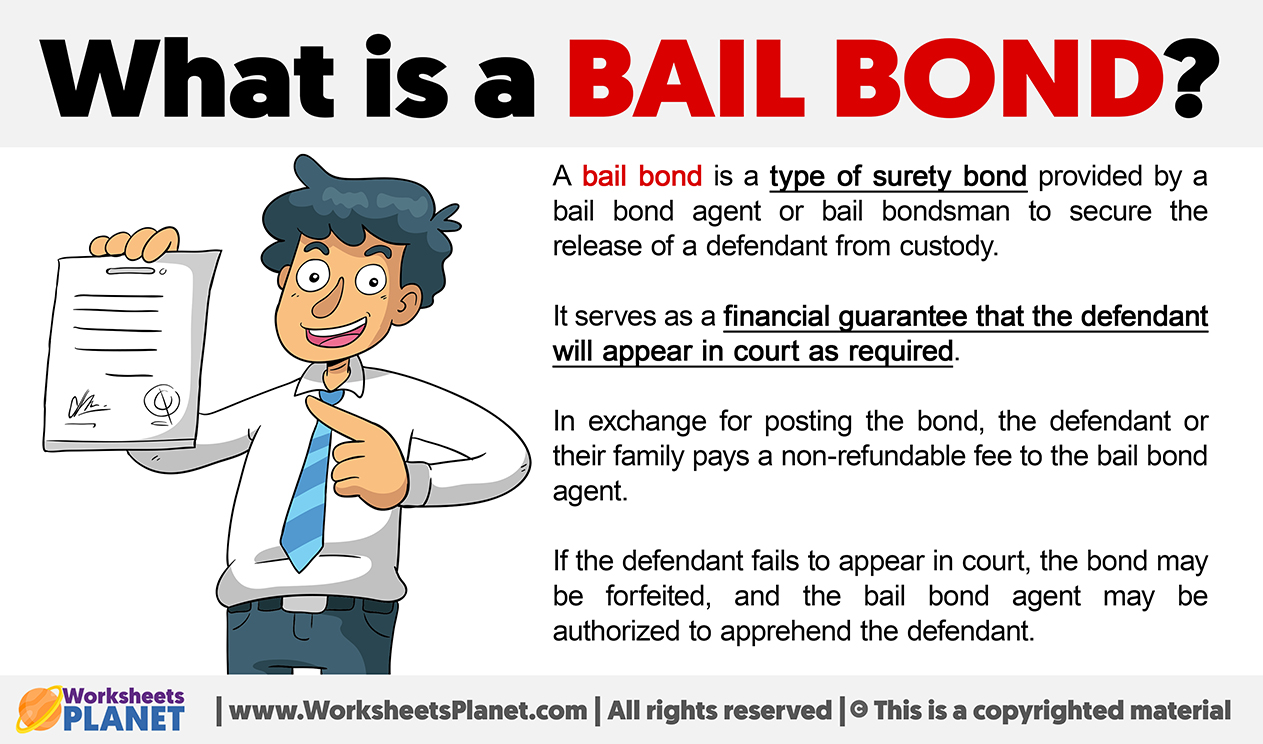Unlocking the Secrets of Bail Bonds: An Extensive Overview
Browsing the complex world of Bail bonds can commonly really feel like understanding a puzzling code, with layers of intricacy that continue to be hidden to lots of. From the various types of Bail bonds available to the critical duty of a co-signer, each element plays a critical part in this legal procedure. As we unwind the web of intricacies surrounding Bail bonds, a more clear understanding arises, losing light on the systems that underpin this system. Join us as we dig deeper right into the nuanced aspects of Bail bonds, discovering the secrets that lie within and demystifying this typically opaque realm.
Understanding Bail Bonds Process
When facing a legal circumstance that calls for posting Bail, recognizing the Bail bonds procedure is vital to browse the complexities of the judicial system successfully. Bail bonds act as a monetary guarantee to the court that the defendant will certainly stand for all needed court looks. This procedure involves a bond bondsman, who generally charges a non-refundable fee, typically around 10% of the total Bail amount, to post the Bail in behalf of the offender.

Additionally, collateral, such as building or properties, might be called for to secure the bail bond. Recognizing the conditions of the bail bond agreement is important to make certain conformity and stay clear of any type of additional lawful repercussions. By understanding the Bail bonds procedure, individuals can make enlightened choices when navigating the lawful system.
Types of Bail Bonds Available
The most typical kind is a surety bond, where a bond bondsman pays the full Bail quantity on part of the accused in exchange for a non-refundable charge, normally around 10% of the complete Bail. Cash bonds require the complete Bail quantity to be paid in money prior to the offender can be launched.
Additionally, there are federal Bail bonds for instances involving government costs and migration bonds for people apprehended by Immigration and Customs Enforcement (ICE) Recognizance, or trademark bonds, are granted based on the accused's pledge to appear in court without needing any repayment. Last but not least, transfer bonds are utilized when a defendant is detained in a different state and requires to post Bail to be released. Recognizing the different sorts of Bail bonds offered can aid offenders browse the lawful process better.
Responsibilities of the Co-Signer

Additionally, as a co-signer, you are liable for making certain that the defendant follows any conditions established by the court, such as participating in therapy or abstaining from certain activities. It is necessary to keep open communication with the defendant to monitor their compliance and deal with any kind of issues immediately. Ultimately, being a co-signer involves a substantial degree of count on and responsibility, as you are financially and lawfully tied to the offender's Bail commitments.
Repercussions of Missing Bail

Avoiding Bail can have severe lawful consequences for both the co-signer and the defendant associated with Click This Link the bail bond agreement. When a defendant fails to appear in court as called for after uploading Bail, the court typically issues a warrant for their apprehension. This not just intensifies the defendant's lawful concerns but likewise places the co-signer at danger.
For the defendant, avoiding Bail can result in added criminal fees, such as contempt of court or Bail leaping, which can result in penalties, an abrogation of Bail benefits, or perhaps jail time. In addition, the accused might shed the Bail amount paid and any type of collateral offered.
Co-signers also face substantial repercussions if the offender avoids Bail. As the co-signer ensures the defendant's appearance in court and is financially responsible for the full Bail amount, they may be needed to pay the entire Bail if the defendant absconds. This can bring about economic pressure, harmed credit report, and potential lawsuit against the co-signer.
Secret Consider Bail Bond Approval
Extra severe offenses might lead to greater Bail amounts or even a denial of Bail completely. A background of previous sentences or a pattern of avoiding court days can elevate red flags and make it harder to safeguard a bail bond.
In addition, the ties the offender has to the area can impact the approval of a bail bond. The capacity to pay the Bail amount or give collateral can boost the opportunities of bail bond approval. Ultimately, a mix of these factors is weighed by the court when determining whether to accept a bail bond.
Final Thought
To conclude, recognizing the Bail bonds process, the types available, the obligations of the co-signer, the repercussions of missing Bail, and the essential elements in bail bond authorization are vital for navigating the lawful system. By familiarizing oneself with these facets, individuals can make informed decisions and make certain a smoother procedure when managing Bail bonds. It is important to adhere to the requirements and standards stated to avoid any kind of prospective difficulties.
The most usual kind is a surety bond, where a bail bondsman pays the full Bail quantity on part of the offender in exchange for a non-refundable fee, usually around 10% of the overall Bail. By signing the bail bond agreement, you are taking on the responsibility arapahoe county bail bonds of ensuring the full Bail amount if the accused stops working to show up in court - bail dayton ohio.Missing Bail can have significant lawful consequences for both the co-signer and the accused entailed in the bail bond contract. The ability to pay the Bail amount or supply security can boost the possibilities of bail bond authorization.In conclusion, comprehending the Bail bonds process, the kinds offered, the obligations of the co-signer, the effects of skipping Bail, and the key variables in bail bond approval are essential for browsing the lawful system
Comments on “Primary Bail Bond Company Dayton Ohio - Your Relied On Partner”